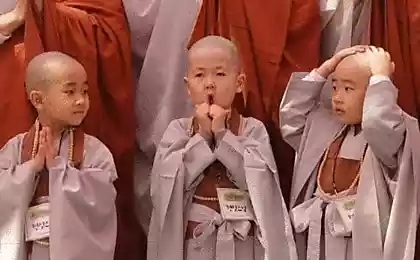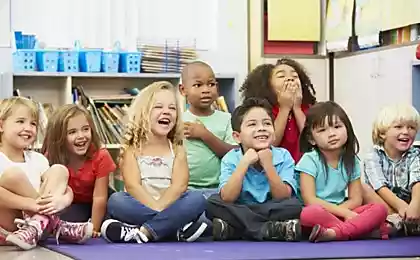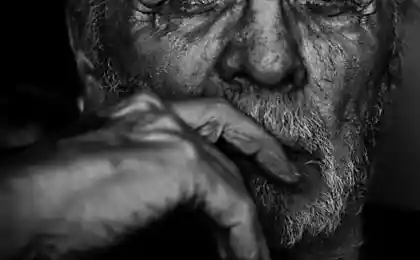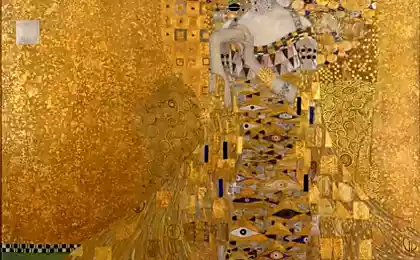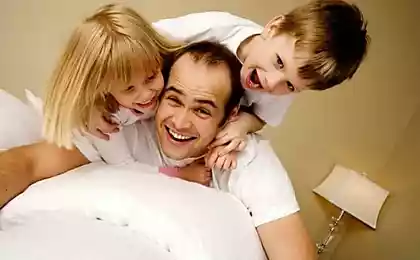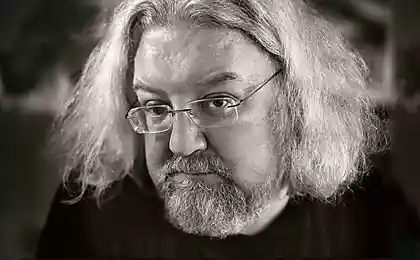571
Golden mean in education freedom
It's hard not to agree that freedom is a necessary condition of healthy, socially active and creative personality. First conversation about freedom in human life arises not in his adolescence, how often it is accepted to think, and even earlier — at age three when the child declares the parent, and that now he will do everything himself. However, when the child is small, parents have to monitor him and limit his freedom in order to protect the baby from the outside world.
How to educate the child so that, on the one hand, to keep rules and control, and on the other, to provide him freedom in action?
Fifty million two hundred fifty two thousand four hundred eighty six
Is it possible in principle to "give" and "take" your freedom? What is the measure of freedom (as it is necessary and how much is enough)? Varies whether the "amount of freedom" for children at different age stages?
FREEDOM AND RESPONSIBILITY
Freedom is the state of the individual in which it experiences itself in a full subject of its activities — she manages and determines its. This experience, which occurs when the correct relationship of child and parent, as the manifestation of a Mature and healthy personality.
On the one hand, the characteristics of freedom are the spontaneity, the unpredictability, the lack of pressure. On the other hand, the word "freedom" is often used in the context of "free will", that is, freedom is largely determined by volitional processes and responsibility.
A manifestation of their own freedom as spontaneity, unpredictability only in the full understanding remains a freedom, when a person takes responsibility not to violate these manifestations of the freedom of another.
Freedom is a fragile balance of I and the WORLD: the world that gives me space to live, and I have a responsible host this space and not invading the space of another person. Thus freedom is inherently connected with the theme of responsibility and control their own life, with the ability to be left to himself. However, parents and children often confuse freedom with the connivance and permissiveness.
Internal experience of freedom must be prepared by a number of age-related neoplasms: such as mindfulness, critical to their actions, the ability to adequately relate to social boundaries and rules, etc.
Freedom must always be related to the age of the child. Often parents give freedom where it is not necessary, and he does not know how to use it, and often, on the contrary, take when he is without it can not, as it is an important condition of finding yourself and identity. It is important for parents to teach their children properly and reasonably exercise the freedom, and for this they need to understand which of its activities a child can manage in a particular age.
THE TYPES OF FREEDOM AND THE AGE OF THE CHILD
Different sources mentioned different types of freedom. I would like to highlight the following:
1.Freedom physical bodily experience "nothing will stop me, not be shy, I can move as I want."
2.Freedom of: the opportunity to engage in those activities that are important and relevant to each age phase in the formation of personality. Experience "nothing prevents me to develop and actualize himself."
3.Freedom personal: inner experience, "the world is not forcing me to do at this point is that I don't want to. I can freely show, Express yourself externally and internally".
4. Freedom of self-realization: the ability to take on responsibility for the implementation of meanings and values in his life. Here the most important component is the will.
Freedom physical
The need of freedom for the child we see at the earliest stages of its development. The first kind of freedom that is meaningful and important for the baby, is the freedom physical. Internal free desire of the child to run, jump, move freely.
Thirteen million five hundred sixty four thousand seven hundred sixty seven
The protest of the child against the restrictions of his physical freedom may be seen now every parent: when the child put on a lot of clothes, and he pulls it away and cries. It often happens that the parent because of their anxieties and worries for the child does not permit him to climb the hill, jump, traps, etc.
Restriction of physical freedom leads first of all to a basic distrust of the world. Their actions and concerns for the adult translates the child a variety of thoughts and feelings:
— the idea of "world threat" and anxiety;
— the idea of "an adult is always around me," and the desire to manipulate, self-centeredness;
— the thought "let an adult do it for me, I can't" — a feeling of uncertainty.
Teach freedom and responsibility you need from a very early age. The main educational setting parent against child: "You can move freely, but your physical activity should not cause harm to you and other». It's not just words — it is the semantic content of the educational actions of the parent in relation to the physical freedom of the child.
Parents sometimes ask: "And if the child has any interest in the outlets? We explained and he still climbs. How, then, is not to limit his freedom?". It is important to understand that the child must learn not to cause yourself harm, and then a clear "no" the parent is not a restriction on his freedom and let him responsibly with that freedom to do: "I can run, play, but forbidden to touch, as it will bring me harm." Freedom does not imply a waiver of the rules.
Children's aggression
Sometimes you can see such situation: the child in some circumstances starts to beat an adult, directing their aggression on mom or dad... Parents react differently: angry in response and beat the child, shaking him and yelling at him, trying to engage in dialogue, make jokes and try to shift his attention. What is the right behavior?
It is important to understand that the child is in virtue of the functional, anatomic, mental immaturity is not always consciously stop myself, and if it is in the heat of passion, then it is difficult to explain something he will just shout and waving arms and legs. The expression of aggression by parent in response to the actions of the child establishes a pattern of behavior: "If I don't like something — you can show physical aggression." So to the parent it is important to stay calm, the solid state and, marking the child with a categorical ban on such actions, to help him strengthen his control stop physical actions: for example, grab his hand the moment he tries to hit the parent, not allowing him to do this. So the parent will teach respect for themselves and their physical freedom.
Freedom personal
With the crisis of three years raises the question of personal freedom or liberty to do yourself. The crisis of three years is famous for its protest reactions. At this age, the children — the little freedom fighters. And adult it is important to give the child the freedom to entrust the child to do some things yourself. Even if the child will get dirty or break, or "do not...". It is important that the child has any experience of Amateur. Adults often make "for" child or give him a ready exit strategy out of the situation without giving him the opportunity to find it yourself. The result is that children find themselves unarmed before the situation and finding the ways of coping with it, react with aggression.
How to understand that the child from three to seven years can be free?
One of the important indicators of harmonious development is the game.
The ability to invent stories, to take on the role, to the enjoyment of the game is very simple and at the same time important for children's development, for the experience of freedom and authenticity.
Many children today, unfortunately, lost that opportunity, because the game has supplanted tablets, smartphones and TV. More and more children can't play, can't think of something, if there are no electronic gadgets. Such poverty and limited domestic space inevitably leads to the loss of inner freedom. The child becomes dependent on electronic means. He is unable to go beyond their own imagination, turning the entire palette of children's play.
Often parents complain that children are lazy, walk around the house doing nothing. Or, conversely, run, showing hyperdynamic. All these are indications that the child is not taught to be in harmony with themselves, to be free. Striking manifestations of physical liberty are largely compensated frustrated personal freedom.
Another significant limitation of the freedom of development in the preschool years is the replacement of games on learning activities. From early childhood, parents are paying great attention to the logic, writing, arithmetic, reading, not taking into account the peculiarities of child's neurophysiology. Active stimulation of the functions of the cerebral cortex, which includes all of the above activities, leads to diminished development of subcortical, priorities emotional sphere, creativity, play, physical activity. Parents build a pyramid of child development from the top down, thus asynchrony in the development of the Central nervous system and — as a consequence of maladjustment of the child. At the same time, following the natural rhythm of a child's development, providing freedom to engage in those activities that are consistent with the age of the child establishes a firm Foundation for harmonious personal development.
FREEDOM AS METHOD OF EDUCATION
Stimulation of a child's liberty can be used as an educational technique. For example, there are times when we offer the child anything, and he flatly refuses. We continue to push, to insist, to persuade, not considering that in this situation, the child requires to make a decision, and the necessary conditions for this are space and support. Sometimes it's more important to agree with the opinion of the child, even if it seems absurd. Such agreement gives confidence, support in yourself and more freedom — and only with this sense of self, he can take another, more reasonable solution.
Parent: Baby, let's go to lunch…
Child: No, I don't want to eat!
Parent: Well, if you don't, we won't be dining.
Child: Well, if you won't eat, well, let's eat…
But most parents say a categorical "no", "No, you're going to do what I've told you." "No" is something that limits and prohibits, it is experienced as "forever" as the end, the loss of opportunities. It is so important to tell the child Yes, rebuilding the phrase so that it from the ban was the proposal. Trapped or shy children are those children who, having acquired parental restrictions, made this way of dealing with them. If a child is internally clamped, he cannot adapt to the state of freedom.
FREEDOM NEUROTIC SYMPTOM!
A need to experience inner freedom, something that becomes especially important when the occurrence of neuroses in children. Psychologists and psychotherapists are often seen at parties of children who bite their nails, pull eyelashes and hair, etc. the First reaction of parents to such behavior is a categorical prohibition.
I'd like to share an example from personal experience. One day I brought a 9 year old boy. Having seen it, I have a feeling that the child is either seriously ill or had undergone chemotherapy. It turned out that the child after a nervous breakdown, pulled out my eyelashes and the hair. Remnants of hair my parents had to shave. This has led parents to the indescribable horror, the child was strictly forbidden to touch the eyelashes and hair. Every time parents checked grew up eyelashes a little, and counted how many roots of the lashes. At my request not to be recorded on the symptom, not prevent the child to do it, parents have responded very excitedly: "What are we going to allow him to pluck out their own eyelashes?!"The whole family was included in this neurosis, establishing strict control over the child. A few days later my parents gave me their second child — a younger sister of this boy, who had the temerity to say: "I don't blame dad, because I have long eyelashes". What, do you think it ended? The boy grabbed his sister and tried to pull out eyelashes and her. And only this extreme situation has helped parents to understand that the control and recording for any symptom worsens the condition of children.
A permanent ban is a fixing on the symptom that deeper and deeper to his roots. After all, what caused the neurosis — it has occurred the loss of some internal supports, it's an experience "the world is unstable, unsafe for me." So freedom is an important and integral part of the therapy of the neurotic experiences of the child.
To overcome OCD, you need to give the child the freedom to be what he is, accept him in this state, not to limit, do not squeeze its prohibitions and penalties, and to show support, respect, acceptance and care. It is a great work for the parent.
No wonder they say: "Symptom child symptom of the family"!
BETWEEN A ROCK AND A HARD PLACE
The question "How much freedom to give the child?"it becomes particularly acute during adolescence. Parents of teenagers, not knowing what to do with a grown child, or give him complete freedom of action, not in correlation with the possibilities of a teenager responsible for his behavior and to dispose of freedom. Or, conversely, are completely deprived of freedom, fear of "bad influences" of their peers.
How can that be? Famous English teacher Alexander nill wrote: "If children are free, they are not so easy to affect, and the reason for the lack of fear." That is, teenage freedom must be prepared in the previous age stages of child development. Adolescence is largely a rebellion and provocation! What was previously forbidden, suppressed, restricted, now, by purchasing power, wants to come out. This may manifest in violent and calling appearance, behavior of the teenager. The teenager actively requires personal freedom sometimes the most destructive ways.
Thirty two million four hundred twenty one thousand eight hundred forty three
The most correct tactics of a parent, in our opinion — apparently to give freedom, so that the child thought that he might dispose of his life himself, but internally to strengthen the control and to watch closely as a teenager finding himself.
Teenagers — no longer children but not yet adults. They still need support and the participation of adults, despite the fact that their behavior may shout to the contrary. This is the age of contradictions. Frame and rules are perceived as taking away freedom, but at the same time giving support. Save with teenagers, reasonable rules is important! Let's choice the opportunity to offer their solutions to a particular problem. Ask about what a teenager is able and willing to offer in a given situation. Don't devalue his opinion! Allow to make mistakes.
At a young age view the question of freedom is changing: now important is not so much freedom from parents, how much freedom in the choice of life. Very often people complaining that they don't like their profession or activity, remember: many years ago when I was in high school, my parents chose for me where I'm going, and I in making this decision, did not participate. Sometimes the other extreme, when the parents say to the child: "Choose yourself what you want", and the child is lost and can not make a choice.
Here, as in all things, an important principle of the Golden mean: the teenager is very important support in the form of specific proposals or strategies from parents, so he didn't feel lost, but to make a choice the child should independently and intelligently. To support but not to decide for the child — in particular the wisdom of the parents.
Once Abraham Maslow in one of his lectures asked students: "which one of you will become a great psychologist?". The guys are embarrassed, and no one raised their hands. Then he said, "And who, if not you?". This is a very important pedagogical strategy when we avansiruem success, give the child to feel that we believe in him. This creates a special experience that he is free in his ways, free to achieve much.published
Author: Alexandrina Grigorieva
P. S. And remember, just changing your mind - together we change the world! ©
Source: thezis.ru/vospitanie-svobodoy.html
How to educate the child so that, on the one hand, to keep rules and control, and on the other, to provide him freedom in action?
Fifty million two hundred fifty two thousand four hundred eighty six
Is it possible in principle to "give" and "take" your freedom? What is the measure of freedom (as it is necessary and how much is enough)? Varies whether the "amount of freedom" for children at different age stages?
FREEDOM AND RESPONSIBILITY
Freedom is the state of the individual in which it experiences itself in a full subject of its activities — she manages and determines its. This experience, which occurs when the correct relationship of child and parent, as the manifestation of a Mature and healthy personality.
On the one hand, the characteristics of freedom are the spontaneity, the unpredictability, the lack of pressure. On the other hand, the word "freedom" is often used in the context of "free will", that is, freedom is largely determined by volitional processes and responsibility.
A manifestation of their own freedom as spontaneity, unpredictability only in the full understanding remains a freedom, when a person takes responsibility not to violate these manifestations of the freedom of another.
Freedom is a fragile balance of I and the WORLD: the world that gives me space to live, and I have a responsible host this space and not invading the space of another person. Thus freedom is inherently connected with the theme of responsibility and control their own life, with the ability to be left to himself. However, parents and children often confuse freedom with the connivance and permissiveness.
Internal experience of freedom must be prepared by a number of age-related neoplasms: such as mindfulness, critical to their actions, the ability to adequately relate to social boundaries and rules, etc.
Freedom must always be related to the age of the child. Often parents give freedom where it is not necessary, and he does not know how to use it, and often, on the contrary, take when he is without it can not, as it is an important condition of finding yourself and identity. It is important for parents to teach their children properly and reasonably exercise the freedom, and for this they need to understand which of its activities a child can manage in a particular age.
THE TYPES OF FREEDOM AND THE AGE OF THE CHILD
Different sources mentioned different types of freedom. I would like to highlight the following:
1.Freedom physical bodily experience "nothing will stop me, not be shy, I can move as I want."
2.Freedom of: the opportunity to engage in those activities that are important and relevant to each age phase in the formation of personality. Experience "nothing prevents me to develop and actualize himself."
3.Freedom personal: inner experience, "the world is not forcing me to do at this point is that I don't want to. I can freely show, Express yourself externally and internally".
4. Freedom of self-realization: the ability to take on responsibility for the implementation of meanings and values in his life. Here the most important component is the will.
Freedom physical
The need of freedom for the child we see at the earliest stages of its development. The first kind of freedom that is meaningful and important for the baby, is the freedom physical. Internal free desire of the child to run, jump, move freely.
Thirteen million five hundred sixty four thousand seven hundred sixty seven
The protest of the child against the restrictions of his physical freedom may be seen now every parent: when the child put on a lot of clothes, and he pulls it away and cries. It often happens that the parent because of their anxieties and worries for the child does not permit him to climb the hill, jump, traps, etc.
Restriction of physical freedom leads first of all to a basic distrust of the world. Their actions and concerns for the adult translates the child a variety of thoughts and feelings:
— the idea of "world threat" and anxiety;
— the idea of "an adult is always around me," and the desire to manipulate, self-centeredness;
— the thought "let an adult do it for me, I can't" — a feeling of uncertainty.
Teach freedom and responsibility you need from a very early age. The main educational setting parent against child: "You can move freely, but your physical activity should not cause harm to you and other». It's not just words — it is the semantic content of the educational actions of the parent in relation to the physical freedom of the child.
Parents sometimes ask: "And if the child has any interest in the outlets? We explained and he still climbs. How, then, is not to limit his freedom?". It is important to understand that the child must learn not to cause yourself harm, and then a clear "no" the parent is not a restriction on his freedom and let him responsibly with that freedom to do: "I can run, play, but forbidden to touch, as it will bring me harm." Freedom does not imply a waiver of the rules.
Children's aggression
Sometimes you can see such situation: the child in some circumstances starts to beat an adult, directing their aggression on mom or dad... Parents react differently: angry in response and beat the child, shaking him and yelling at him, trying to engage in dialogue, make jokes and try to shift his attention. What is the right behavior?
It is important to understand that the child is in virtue of the functional, anatomic, mental immaturity is not always consciously stop myself, and if it is in the heat of passion, then it is difficult to explain something he will just shout and waving arms and legs. The expression of aggression by parent in response to the actions of the child establishes a pattern of behavior: "If I don't like something — you can show physical aggression." So to the parent it is important to stay calm, the solid state and, marking the child with a categorical ban on such actions, to help him strengthen his control stop physical actions: for example, grab his hand the moment he tries to hit the parent, not allowing him to do this. So the parent will teach respect for themselves and their physical freedom.
Freedom personal
With the crisis of three years raises the question of personal freedom or liberty to do yourself. The crisis of three years is famous for its protest reactions. At this age, the children — the little freedom fighters. And adult it is important to give the child the freedom to entrust the child to do some things yourself. Even if the child will get dirty or break, or "do not...". It is important that the child has any experience of Amateur. Adults often make "for" child or give him a ready exit strategy out of the situation without giving him the opportunity to find it yourself. The result is that children find themselves unarmed before the situation and finding the ways of coping with it, react with aggression.
How to understand that the child from three to seven years can be free?
One of the important indicators of harmonious development is the game.
The ability to invent stories, to take on the role, to the enjoyment of the game is very simple and at the same time important for children's development, for the experience of freedom and authenticity.
Many children today, unfortunately, lost that opportunity, because the game has supplanted tablets, smartphones and TV. More and more children can't play, can't think of something, if there are no electronic gadgets. Such poverty and limited domestic space inevitably leads to the loss of inner freedom. The child becomes dependent on electronic means. He is unable to go beyond their own imagination, turning the entire palette of children's play.
Often parents complain that children are lazy, walk around the house doing nothing. Or, conversely, run, showing hyperdynamic. All these are indications that the child is not taught to be in harmony with themselves, to be free. Striking manifestations of physical liberty are largely compensated frustrated personal freedom.
Another significant limitation of the freedom of development in the preschool years is the replacement of games on learning activities. From early childhood, parents are paying great attention to the logic, writing, arithmetic, reading, not taking into account the peculiarities of child's neurophysiology. Active stimulation of the functions of the cerebral cortex, which includes all of the above activities, leads to diminished development of subcortical, priorities emotional sphere, creativity, play, physical activity. Parents build a pyramid of child development from the top down, thus asynchrony in the development of the Central nervous system and — as a consequence of maladjustment of the child. At the same time, following the natural rhythm of a child's development, providing freedom to engage in those activities that are consistent with the age of the child establishes a firm Foundation for harmonious personal development.
FREEDOM AS METHOD OF EDUCATION
Stimulation of a child's liberty can be used as an educational technique. For example, there are times when we offer the child anything, and he flatly refuses. We continue to push, to insist, to persuade, not considering that in this situation, the child requires to make a decision, and the necessary conditions for this are space and support. Sometimes it's more important to agree with the opinion of the child, even if it seems absurd. Such agreement gives confidence, support in yourself and more freedom — and only with this sense of self, he can take another, more reasonable solution.
Parent: Baby, let's go to lunch…
Child: No, I don't want to eat!
Parent: Well, if you don't, we won't be dining.
Child: Well, if you won't eat, well, let's eat…
But most parents say a categorical "no", "No, you're going to do what I've told you." "No" is something that limits and prohibits, it is experienced as "forever" as the end, the loss of opportunities. It is so important to tell the child Yes, rebuilding the phrase so that it from the ban was the proposal. Trapped or shy children are those children who, having acquired parental restrictions, made this way of dealing with them. If a child is internally clamped, he cannot adapt to the state of freedom.
FREEDOM NEUROTIC SYMPTOM!
A need to experience inner freedom, something that becomes especially important when the occurrence of neuroses in children. Psychologists and psychotherapists are often seen at parties of children who bite their nails, pull eyelashes and hair, etc. the First reaction of parents to such behavior is a categorical prohibition.
I'd like to share an example from personal experience. One day I brought a 9 year old boy. Having seen it, I have a feeling that the child is either seriously ill or had undergone chemotherapy. It turned out that the child after a nervous breakdown, pulled out my eyelashes and the hair. Remnants of hair my parents had to shave. This has led parents to the indescribable horror, the child was strictly forbidden to touch the eyelashes and hair. Every time parents checked grew up eyelashes a little, and counted how many roots of the lashes. At my request not to be recorded on the symptom, not prevent the child to do it, parents have responded very excitedly: "What are we going to allow him to pluck out their own eyelashes?!"The whole family was included in this neurosis, establishing strict control over the child. A few days later my parents gave me their second child — a younger sister of this boy, who had the temerity to say: "I don't blame dad, because I have long eyelashes". What, do you think it ended? The boy grabbed his sister and tried to pull out eyelashes and her. And only this extreme situation has helped parents to understand that the control and recording for any symptom worsens the condition of children.
A permanent ban is a fixing on the symptom that deeper and deeper to his roots. After all, what caused the neurosis — it has occurred the loss of some internal supports, it's an experience "the world is unstable, unsafe for me." So freedom is an important and integral part of the therapy of the neurotic experiences of the child.
To overcome OCD, you need to give the child the freedom to be what he is, accept him in this state, not to limit, do not squeeze its prohibitions and penalties, and to show support, respect, acceptance and care. It is a great work for the parent.
No wonder they say: "Symptom child symptom of the family"!
BETWEEN A ROCK AND A HARD PLACE
The question "How much freedom to give the child?"it becomes particularly acute during adolescence. Parents of teenagers, not knowing what to do with a grown child, or give him complete freedom of action, not in correlation with the possibilities of a teenager responsible for his behavior and to dispose of freedom. Or, conversely, are completely deprived of freedom, fear of "bad influences" of their peers.
How can that be? Famous English teacher Alexander nill wrote: "If children are free, they are not so easy to affect, and the reason for the lack of fear." That is, teenage freedom must be prepared in the previous age stages of child development. Adolescence is largely a rebellion and provocation! What was previously forbidden, suppressed, restricted, now, by purchasing power, wants to come out. This may manifest in violent and calling appearance, behavior of the teenager. The teenager actively requires personal freedom sometimes the most destructive ways.
Thirty two million four hundred twenty one thousand eight hundred forty three
The most correct tactics of a parent, in our opinion — apparently to give freedom, so that the child thought that he might dispose of his life himself, but internally to strengthen the control and to watch closely as a teenager finding himself.
Teenagers — no longer children but not yet adults. They still need support and the participation of adults, despite the fact that their behavior may shout to the contrary. This is the age of contradictions. Frame and rules are perceived as taking away freedom, but at the same time giving support. Save with teenagers, reasonable rules is important! Let's choice the opportunity to offer their solutions to a particular problem. Ask about what a teenager is able and willing to offer in a given situation. Don't devalue his opinion! Allow to make mistakes.
At a young age view the question of freedom is changing: now important is not so much freedom from parents, how much freedom in the choice of life. Very often people complaining that they don't like their profession or activity, remember: many years ago when I was in high school, my parents chose for me where I'm going, and I in making this decision, did not participate. Sometimes the other extreme, when the parents say to the child: "Choose yourself what you want", and the child is lost and can not make a choice.
Here, as in all things, an important principle of the Golden mean: the teenager is very important support in the form of specific proposals or strategies from parents, so he didn't feel lost, but to make a choice the child should independently and intelligently. To support but not to decide for the child — in particular the wisdom of the parents.
Once Abraham Maslow in one of his lectures asked students: "which one of you will become a great psychologist?". The guys are embarrassed, and no one raised their hands. Then he said, "And who, if not you?". This is a very important pedagogical strategy when we avansiruem success, give the child to feel that we believe in him. This creates a special experience that he is free in his ways, free to achieve much.published
Author: Alexandrina Grigorieva
P. S. And remember, just changing your mind - together we change the world! ©
Source: thezis.ru/vospitanie-svobodoy.html








